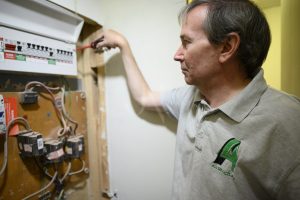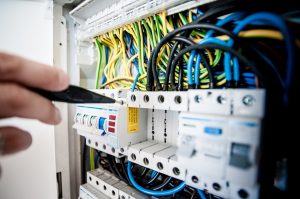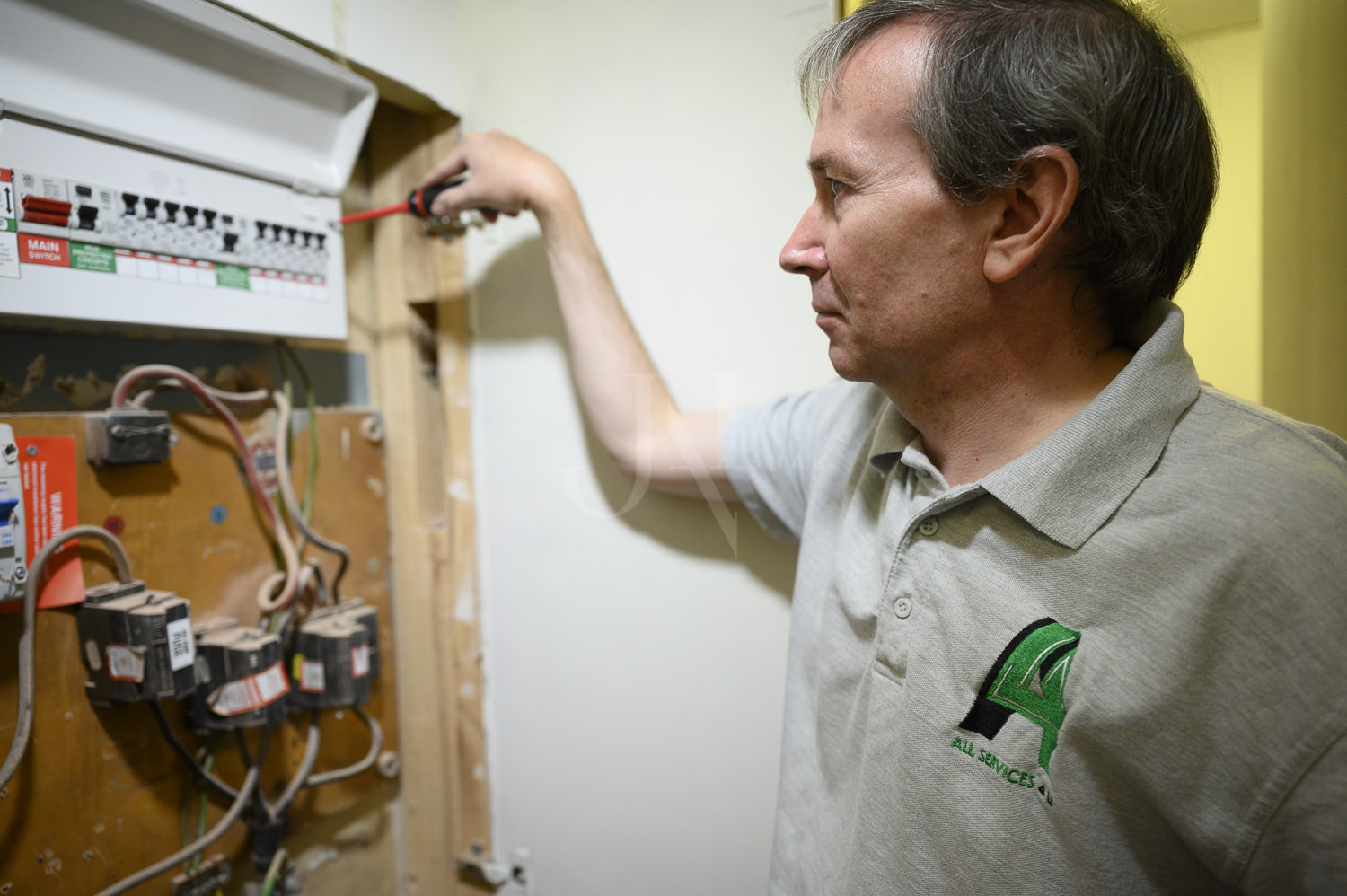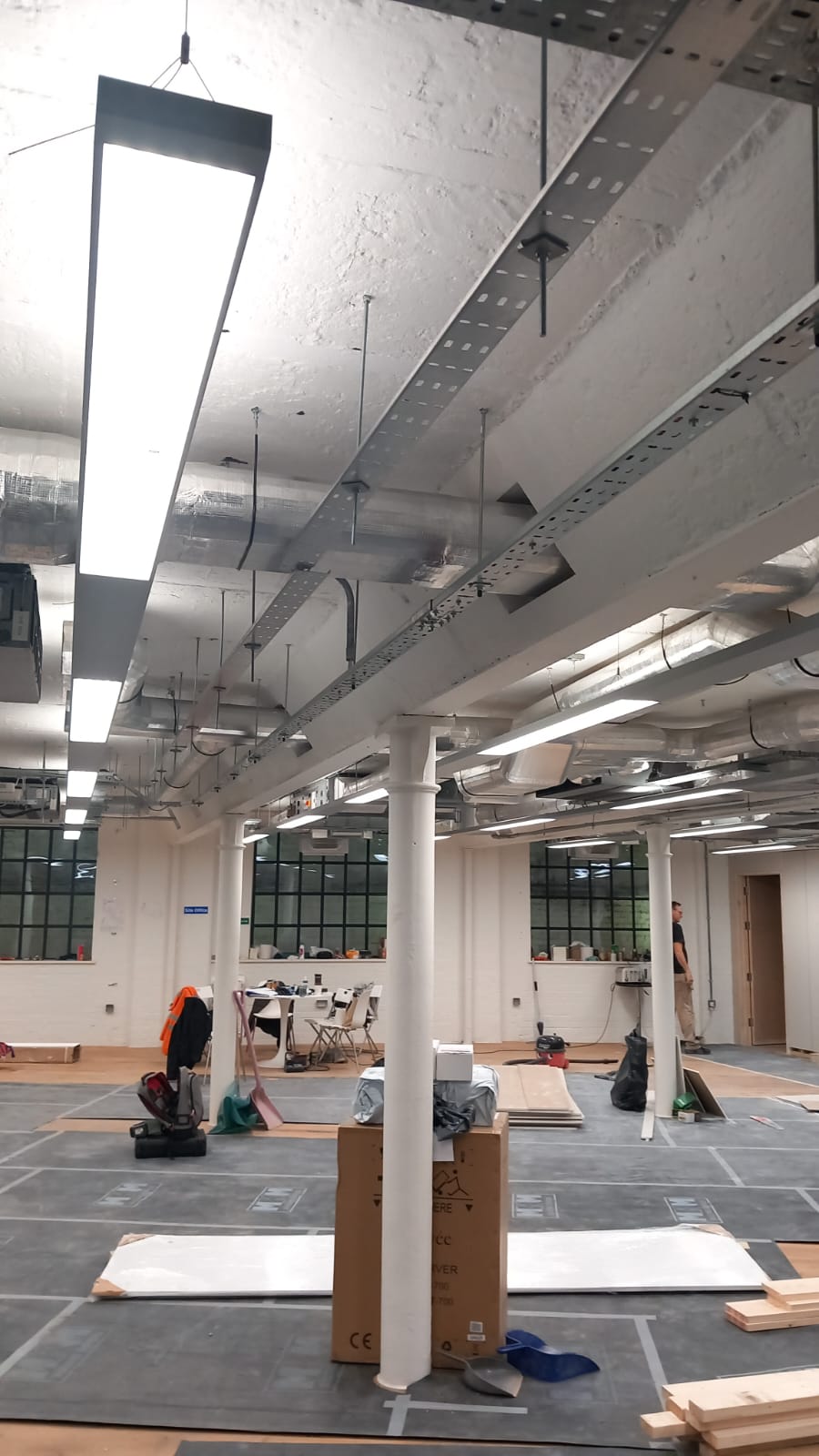Snuggled up with a steaming mug of your favorite beverage, take a moment to reflect on the importance of fire risk assessments in preserving your cozy sanctuary. It's warm, it's cosy - but have you ever stopped to consider what keeps that comfortable bubble safe? Let me tell you about something critical yet often overlooked: FIRE RISK ASSESSMENTS.
We all love our homes and offices; they are our sanctuaries. But these very places can turn into nightmares without proper safety measures. Fire hazards could be lurking in every corner, ready to pounce when least expected.
You might think "surely not my home" or "not my small business". That’s where you’d be wrong. From a large office block to your snug living room – nowhere is immune.
We'll demonstrate how to recognise and handle potential fire dangers in your abode, so you can ensure it's a safe environment.
Table of Contents:
- Understanding Fire Risk Assessments
- Identifying Fire Hazards in Your Home
- Protecting Vulnerable Occupants from Fire Risks
- Creating an Effective Emergency Plan
- Mastering Fire Risk Assessments
- FAQs in Relation to Fire Risk Assessments
- Conclusion
Understanding Fire Risk Assessments
If you're a business owner, managing agent or 'competent person', fire risk assessments should be on your radar. They are the legal requirement to keep your business premises safe from fires and other hazards.The Role of the Responsible Person in Fire Risk Assessments
You might wonder who this 'responsible person' is. They could be anyone – a designated responsible individual like an employer, landlord, or even the building's responsible person such as members of a residents' association. The law simply calls for someone to take charge. This hero doesn't wear a cape; instead, they carry out risk assessments regularly. Identifying potential risks like electrical equipment misuse or improper storage of flammable substances isn’t their only duty though. Here’s more about what it takes to be that competent and crucially important ‘responsible person’ under UK laws.Legal Guidelines for Fire Risk Assessments
No one wants trivial concerns escalating into real safety threats because they didn't understand the rules. So let's clarify them.- Risk Assessor: It’s not always easy being this ‘responsible’ figure - especially when dealing with large office blocks or complex sites where many factors come into play. Sometimes, you need professional help. A professional risk assessor can guide you through every step of assessing risks efficiently and effectively.
- Risk Assessment Written Record: A good fire risk assessment needs proper documentation – basically an assessment written down meticulously. Remember: If there are over five regular occupants in your building (like in a small shop or large office), keeping written records is mandatory.
- Review: A risk assessment isn’t something you do once and forget. Risks can change over time - think new building works, more employees or even different types of equipment being used. Your original assessment should be looked over routinely to ensure it is up-to-date with any modifications.
Key Takeaway:
Fire risk assessments are a must for business owners and 'competent persons'. The task lies with the designated 'responsible person', who regularly identifies risks, from misuse of electrical equipment to improper storage of flammable substances. Professional help is available if it's tricky navigating complex sites. Proper documentation is key, especially in premises with over five regular occupants. Remember - review your assessment often as risks can change.
Identifying Fire Hazards in Your Home
Home sweet home, right? But it's only sweet when it's safe. So let's get to work.Common Causes of Fires in Homes
You'll find fire hazards lurking everywhere. Think about your electrical equipment and heating devices. We often overlook them as they are part of our daily lives but did you know these gadgets can be silent arsonists? Fires caused by electrical mishaps account for a significant percentage of domestic blazes. Overloading circuits, worn-out wires or malfunctioning appliances; any one could turn up the heat unexpectedly. The same goes for heating devices like portable heaters and wood-burning stoves if not used properly. Always remember to give these items their space. Keep anything that can burn at least three feet away from them. Here’s a handy guide on heating safety.Safe Storage of Dangerous Substances
Dangerous substances - sounds alarming doesn't it? Well, some common household items fit this description too. We're talking things like cleaning products, aerosol cans and even certain cosmetics; all potentially combustible materials that could trigger fires under the right conditions. Here is more information on how seemingly harmless objects might become dangerous. Your job here is simple: keep 'em outta reach. Securely store flammable products away from children and pets (they're the usual suspects for accidents), and away from heat sources too. A locked cabinet or a high shelf would do just fine. Don't forget about smoking areas if you have them in your home. Used matches, cigarette butts - these are all potential fire starters that should be disposed of safely.It's Not Just About Detection
We often rely on smoke detectors to warn us of danger. But what if they fail to detect danger? Young people, disabled individuals, lone workers – everyone needs an extra layer of protection. Here’s a guide to help protect those at risk.
Key Takeaway:
Spotting fire hazards in your home is crucial. From electrical equipment and heating devices to household items, many everyday objects can become dangerous under the right conditions. It's not just about detection; everyone needs extra protection against fires. So let's make our homes safer by identifying these risks and storing potential dangers out of reach.
Protecting Vulnerable Occupants from Fire Risks
Fires don't discriminate. But, some people are more vulnerable. We're talking about the young and disabled occupants in our homes.Safety Measures for Young and Disabled Occupants
Fire protection is not a single solution that applies to all. Vulnerable people need specific plans tailored to their needs. Identifying vulnerable people is the first step in creating tailored fire safety plans for them. The risk assessment should note any regular occupants who may struggle during an emergency evacuation due to age or disability. Here's a helpful guide on how you can do this effectively. Beyond identification, special safety precautions must be implemented.- A personalised fire escape plan? Check. Make sure it considers mobility issues or sensory impairments.
- Critical equipment such as alarms with flashing lights for those hard of hearing? Sorted.
- Dedicated support team trained specifically in assisting during emergencies? Absolutely crucial.
Creating an Effective Emergency Plan
An emergency plan. Sounds serious, right? It is. Your office block or small business needs one to keep everyone safe from fires. You don't want a trivial concern turning into a disaster.Key Elements of a Good Emergency Plan
Main Findings:- A clear route for evacuation. That's your first task.
- Regular occupants need to know it too. So provide training on this vital safety measure.
- The designated responsible person should be easy to reach during emergencies. Add their enquiries number in the plan.
- Fires can start anywhere - even from building works. Safety risk assessment regularly checks these risks and offers specific guidelines to prevent them.
Mastering Fire Risk Assessments
Your business isn't just about profit. It's also about safety. The facilities department needs to have fire risk assessment guides handy, but what are they?The Lowdown on Fire Risk Assessments
A fire risk assessment is a must for any office block or small shop. Fret not, for it is simpler than you may think. Think of it like checking your car before a road trip.Who Should Do the Assessment?
You might think this job falls to some distant building's responsible person in the residents' association or large office block. Not necessarily. In fact, anyone who can use specific guidelines and understands the premises can carry out an individual review.Tips For Conducting A Successful Assessment
- Prioritize areas where hazards could be introduced by building works or changes in regular occupants - such as sleeping accommodation areas or common rooms.
No Trivial Concerns In Safety Matters
Remember that even trivial concerns should be treated seriously during these assessments. Keeping key areas clear and being vigilant against potential risks helps make sure everyone stays safe. Need help with this? There are professionals ready to assist. Professional risk assessors offer comprehensive services from initial assessments right through to implementing necessary changes. The best part? You're now equipped with enough knowledge on fire risk assessments for small businesses. A bit more confident? Good. Because you're doing more than keeping your business running – you’re making people’s lives safer too. That certainly matters. But don’t forget: learning doesn’t stop here. Make sure you continue brushing up your skills, stay updated with new regulations and ensure your training is always current. So let’s keep making our workplaces safer, one fire risk assessment at a time.
Key Takeaway:
Understanding Fire Risk Assessments: Not just for big buildings, anyone can do a fire risk assessment. It's about spotting hazards and making your place safer - like checking your car before a trip.
Your Role Matters: You don't need to be an expert. Even minor concerns matter in safety. And if you're stuck, there are pros ready to help.
Beyond Business: Running a business isn't just about profit; it's keeping people safe too. So stay updated on regulations and keep learning because every fire risk assessment makes workplaces safer.




